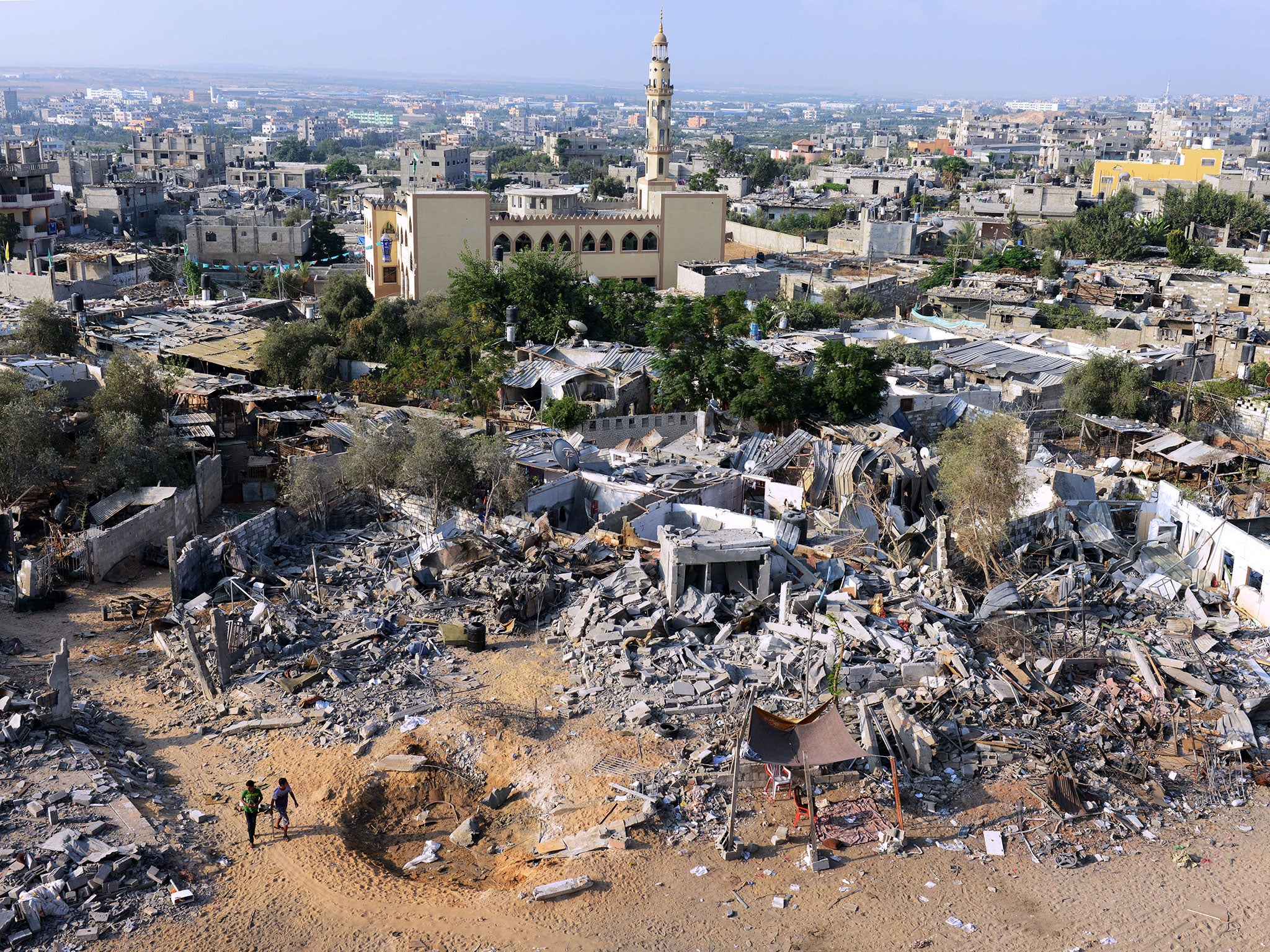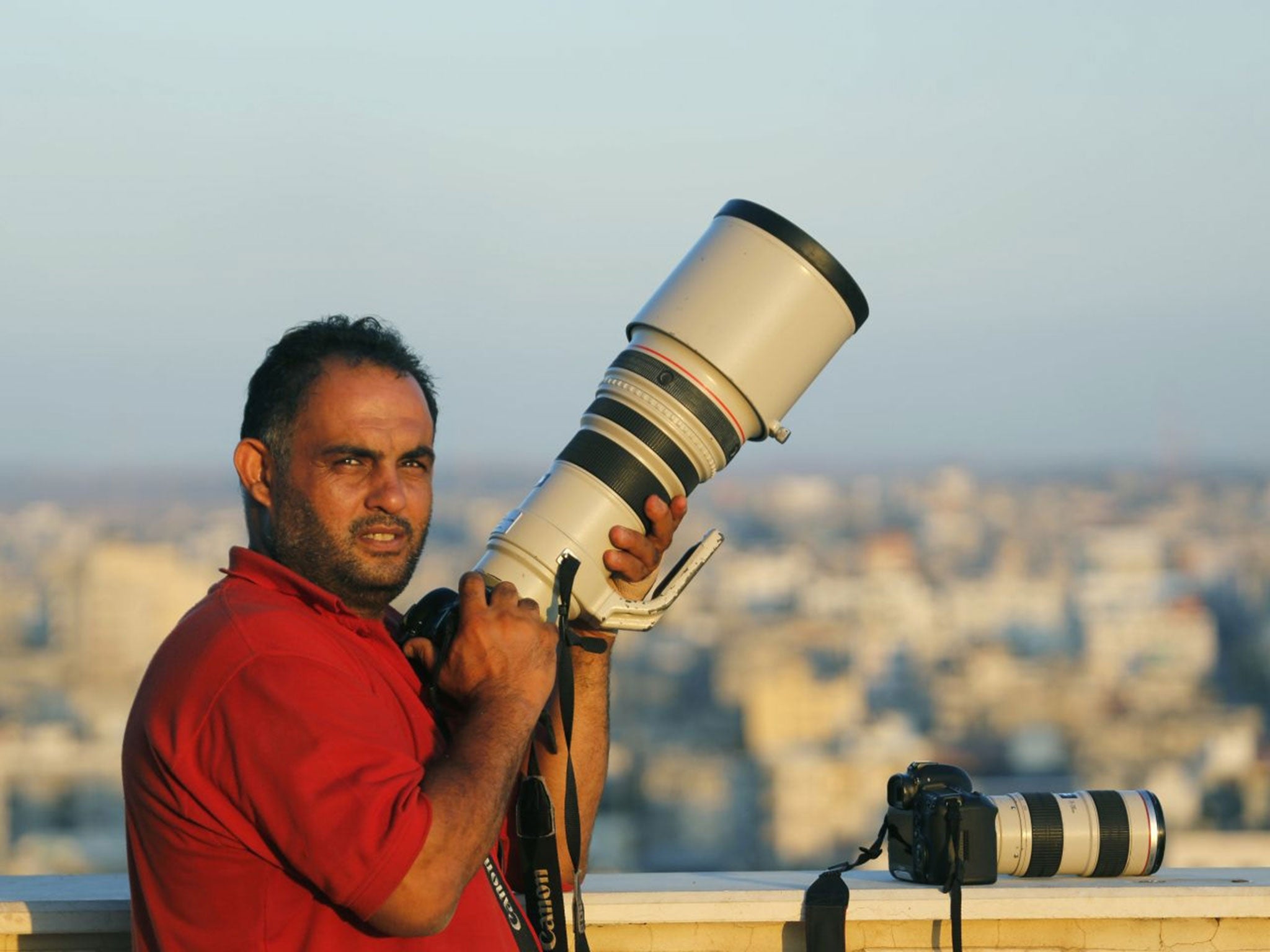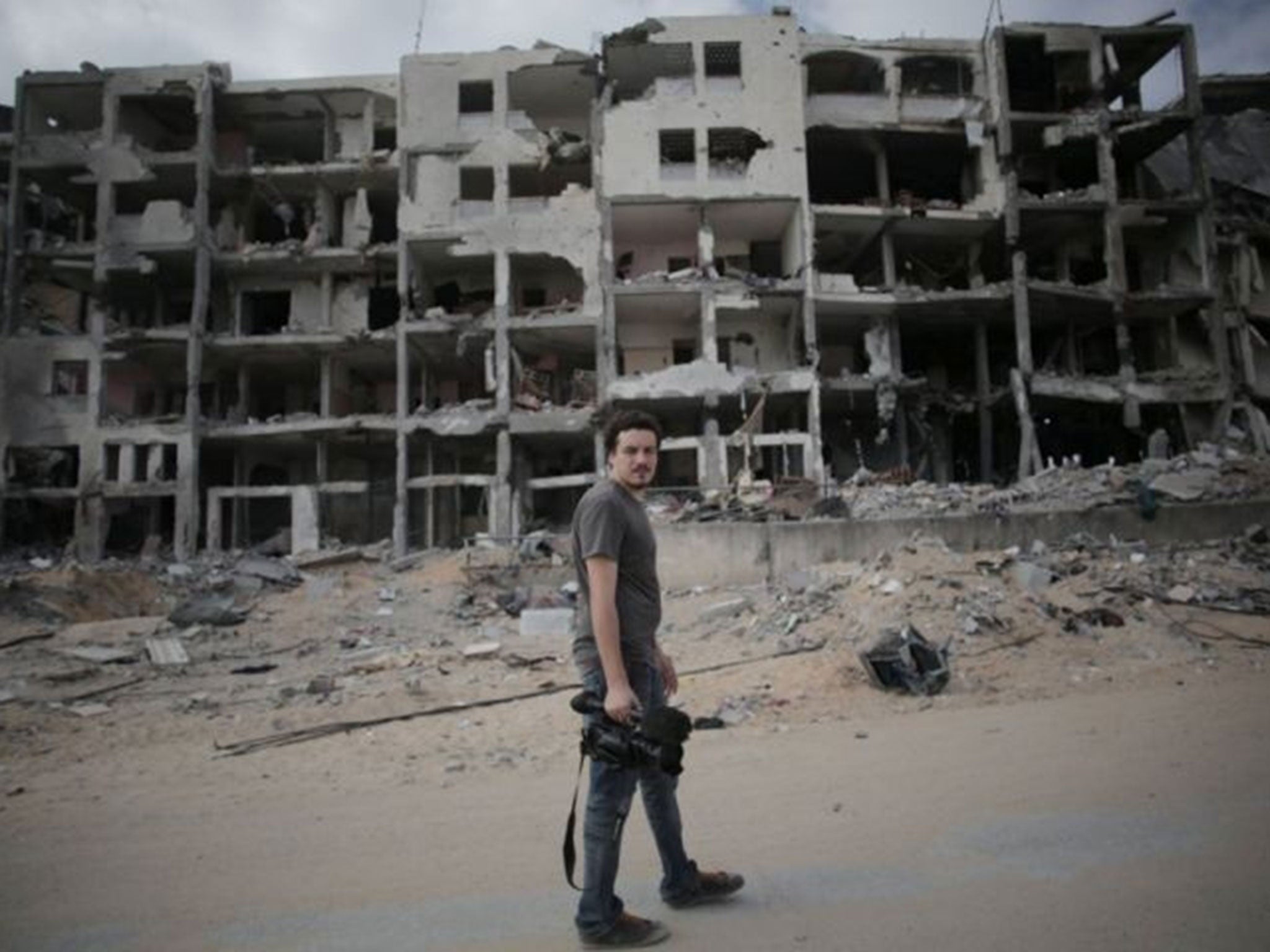Israel-Gaza crisis: Gaza ceasefire extended despite three rockets being fired at Israel
Tel Aviv and Hamas agree to a new cessation for at least 72 hours after intense talks in Egypt

Your support helps us to tell the story
From reproductive rights to climate change to Big Tech, The Independent is on the ground when the story is developing. Whether it's investigating the financials of Elon Musk's pro-Trump PAC or producing our latest documentary, 'The A Word', which shines a light on the American women fighting for reproductive rights, we know how important it is to parse out the facts from the messaging.
At such a critical moment in US history, we need reporters on the ground. Your donation allows us to keep sending journalists to speak to both sides of the story.
The Independent is trusted by Americans across the entire political spectrum. And unlike many other quality news outlets, we choose not to lock Americans out of our reporting and analysis with paywalls. We believe quality journalism should be available to everyone, paid for by those who can afford it.
Your support makes all the difference.A deal between Israel and Hamas to extend the temporary ceasefire by five days appeared in doubt late on Wednesday as Israeli forces hit targets in Gaza in response to earlier rocket attacks.
The extension of the truce was designed to allow more time for Egyptian mediators to bridge the continuing gap between the two sides on a possible agreement to end the 35-day Gaza war.
Three days of intense, if indirect, negotiations failed to achieve the hoped-for breakthrough that might have produced an end to the conflict, which has cost more than 1,900 Palestinian lives and caused the deaths of 66 Israelis, the large majority of them soldiers.
As the ceasefire came to an end at midnight local time, Palestinian and Egyptian officials claimed a new truce had been agreed.
“We have agreed on a cease-fire for five days,” said Azzam al-Ahmad, the head of the Palestinian delegation to the Cairo talks.
He noted that there had been “significant progress” on the long-term deal, but that disagreements remained over the wording regarding security arrangements, reconstruction efforts for the Gaza Strip and the permissible fishing area.
However, despite the negotiations, at least five rockets were fired into southern Israel without causing any casualties, according to Israeli officials.
And another rocket killed a child and wounded two others in Egypt near the border with Gaza. Sara Salama, 13, was killed and her eight-year-old brother Khaled and sister Rahaf, 2, were seriously hurt in the Egyptian town of el-Mattallah, close to the Palestinian border town of Rafah, security and medical sources said.
A spokesman for the Hamas movement, which is in power in Gaza, denied that it had fired any rockets.
An Israeli official told Barak Ravid, diplomatic correspondent for the Haaretz newspaper, that the Government had agreed to the five-day extension, but that the truce had been violated by the Palestinians and the Israeli Defence Forces had been ordered to retaliate.
The official said Israel was testing how serious Hamas was about the ceasefire.
Israel warplanes bombed several sites in northern Gaza early on Thursday, a few minutes after the new truce was supposed to have started. There were no immediate reports of casualties.
Israel also moved ground forces closer to Gaza and called up additional reservist troops, Israeli media reported. The military said its forces were “moved around on a routine basis” and would not elaborate.
Israel's Major General Nitzan Alon said: “It is not clear what happens next, but one thing is clear: that the Israeli Defence Forces is vigilant and prepared to fight any enemy that will hurt Israeli citizens and threaten their safety.”

While the airstrikes on Gaza late on Wednesday did not appear to have killed anyone, the casualties continued with the deaths of four members of a local bomb-disposal team and two journalists - including an Italian working with the Associated Press.
They were killed as the sappers tried to defuse unexploded ordnance in Beit Lahiya. The team's task is especially dangerous because the members have no protective clothing or remote control and X-ray devices. Four other people, including AP photographer Hatem Moussa, were seriously injured.
At Gaza City's Shifa Hospital, an eye-witness with shrapnel injuries, Yahya al Zani, 20, said he was waiting for a taxi when he saw the team about 20 metres away, including a man who was working on what appeared to be a tank shell.
“Some other guys were photographing as they were trying to defuse it,” he said. “Then there was a big explosion and I saw five or six bodies.”
Mr Moussa, who has taken pictures for The Independent over the past decade - underwent abdominal surgery and was also being treated for leg and head injuries.

AP quoted the agency's chief producer in Gaza, Najib Jobain, as saying that Simone Camilli, the first foreign journalist to be killed in Gaza since the present conflict began, had recently turned down an assignment in Iraq.
“He was my brother. I have known him for almost 10 years. He was so happy to be with me working in Gaza,” Mr Jobain said.
Join our commenting forum
Join thought-provoking conversations, follow other Independent readers and see their replies
Comments